-
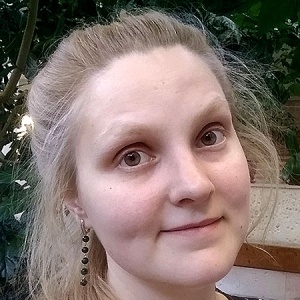
Olga Bakulina
Saint Petersburg State University, Russia -
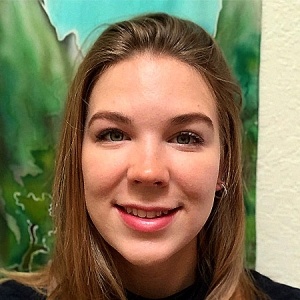
Kerry Betz
Stanford University, United States -
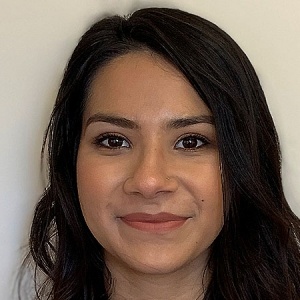
Aisha Naziran Bismillah
Durham University, United Kingdom -
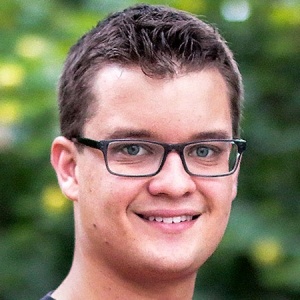
Nathan Boase
Queensland University of Technology, Australia -
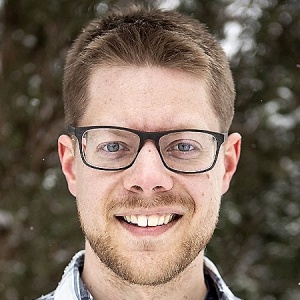
Lucas Busta
University of Nebraska, United States -
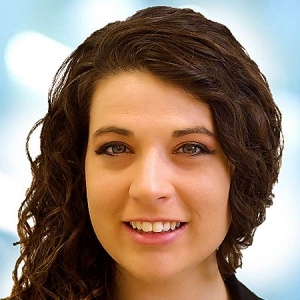
Cassandra Callmann
Northwestern University, United States -
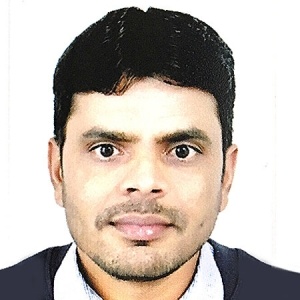
Subhash Chander
Indian Institute of Science Education and Research (IISER), Mohali, India -
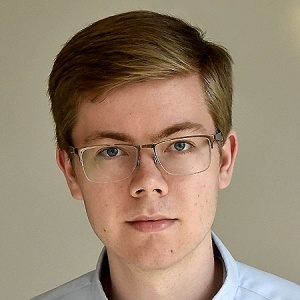
Connor W. Coley
Massachusetts Institute of Technology, United States -
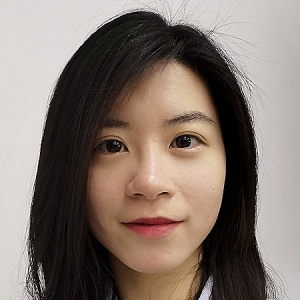
Yuanxin Deng
East China University of Science and Technology, China -
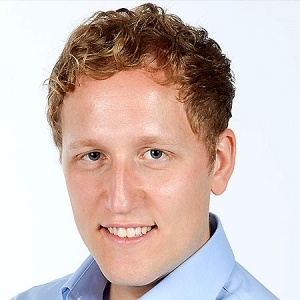
Andreas Ehnbom
Texas A&M University, United States -
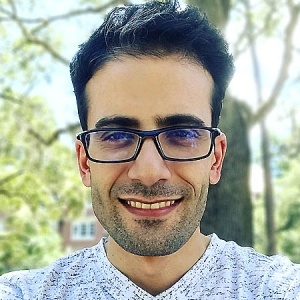
Ehsan Fereyduni
University of Florida, United States -
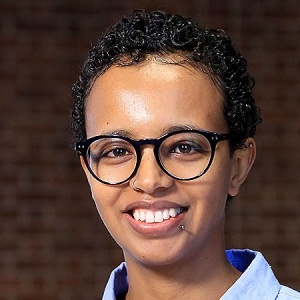
Mahlet Garedew
Yale University, United States -
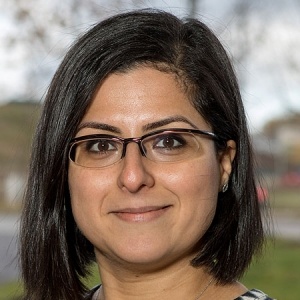
Farnaz Heidar Zadeh
Ghent University, Belgium -
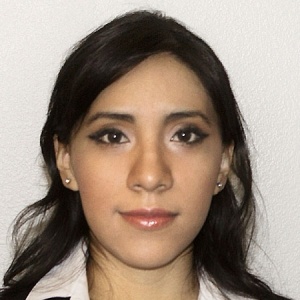
Jazmín Ciciolil Hilario-Martínez
Benemérita Universidad Autónoma de Puebla, Mexico -
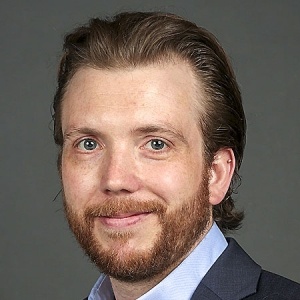
Gregory K. Hodgson
Ryerson University, Canada -
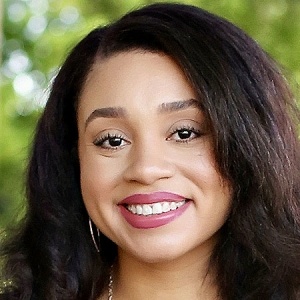
Arianne C. Hunter
University of Oklahoma, United States -
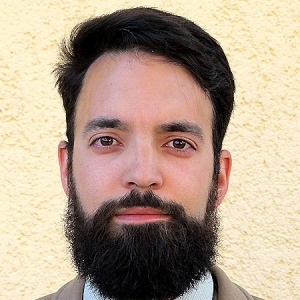
Marc-André Légaré
Julius-Maximilians-Universität Würzburg, Germany -
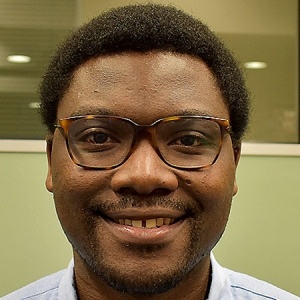
Dickson Mambwe
University of Cape Town, South Africa -
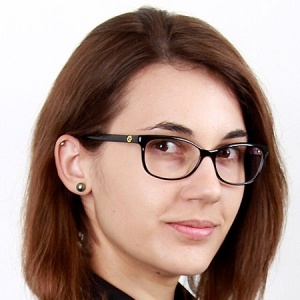
Jovana V. Milić
École polytechnique fédérale de Lausanne, Switzerland -
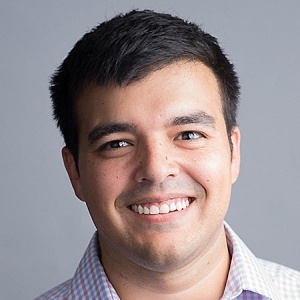
Sean N. Natoli
University of California, Berkeley, United States -
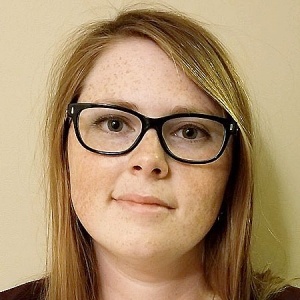
Meagan Oakley
University of Alberta, Canada -
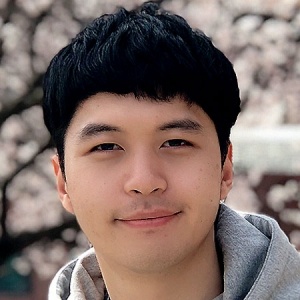
Yoonsu Park
Korea Advanced Institute of Science and Technology, South Korea -
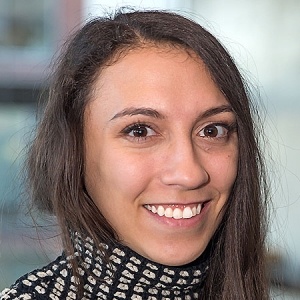
Vanessa Sanchez
Harvard University, United States -
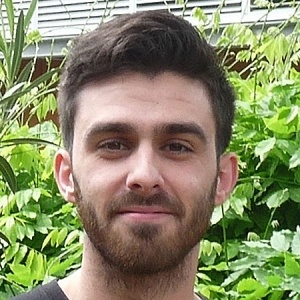
Jesus Sanjosé-Orduna
Institute of Chemical Research of Catalonia, Spain -
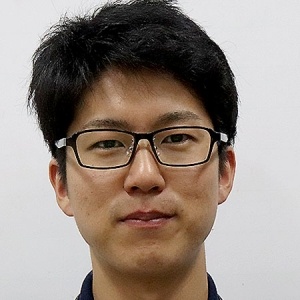
Koichi Sasaki
Kyushu University, Japan -
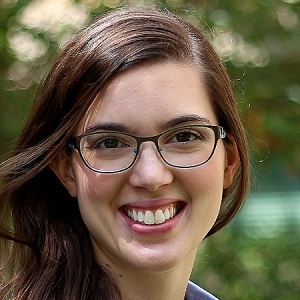
Tracy Schloemer
Colorado School of Mines, United States -
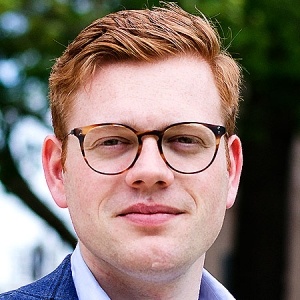
Dannie van Osch
Eindhoven University of Technology, Netherlands -
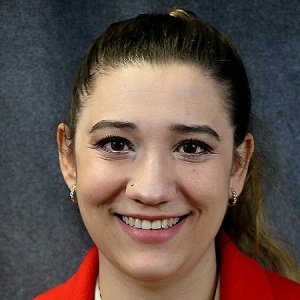
Paulette Vincent-Ruz
University of Pittsburgh, United States -
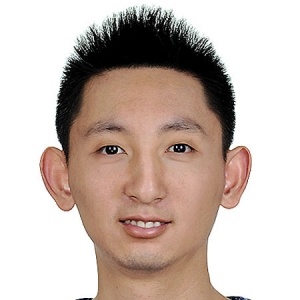
Liang Zhang
University of Manchester, United Kingdom
Olga Bakulina
Olga was born in 1992 and grew up near Saint Petersburg, Russia. In 2016, she obtained her Ph.D. in organic chemistry at Saint Petersburg State University, developing novel synthetic approaches to peri-annulated azaheterocylic luminophores. Olga is currently a postdoctoral researcher at the same university in the laboratory of chemical pharmacology, headed by Prof. Mikhail Krasavin. Her research focuses on biomedical chemistry and the development of synthetic methodology for multicomponent reactions. In 2017, she was selected to represent Saint Petersburg State University at the 67th Lindau Nobel Laureate Meeting.
Kerry Betz
Kerry is currently an NSF Graduate Fellow in Prof. Justin Du Bois’s lab at Stanford University. Her research focuses on expanding the capabilities of C-H amination reactions through novel catalyst design and applications to total synthesis. Prior to attending Stanford, she received a B.S. with honors in chemistry from Caltech, where she won the Friends of the Caltech Library Thesis Prize for her work in the lab of Prof. Robert Grubbs on alkali-metal-catalyzed C-H silylation. Outside of lab, Kerry enjoys painting, playing music (violin, mandolin), and the outdoors (hiking, rock climbing and camping).
Aisha Naziran Bismillah
Aisha is a supramolecular and physical organic chemist with training in organic synthesis, advanced NMR spectroscopy, superacidic methodology, as well as host-guest chemistry. She is currently a Ph.D. student at Durham University working with Dr. Paul McGonigal investigating fluxional carbon cages and their shapeshifting properties. Over the course of her Ph.D., she has accrued numerous awards, grants and scholarships, including a competitive RSC Researcher Mobility Grant allowing her to work with Prof. G.K. Surya Prakash at the University of Southern California. Aisha has recently been awarded a prestigious US-UK Fulbright Scholarship to work as a postdoctoral researcher in Prof. Ivan Aprahamian's research group at Dartmouth College. Her research will focus on hydrazone switch-based negative feedback loops.
Nathan Boase
Nathan is a lecturer at Queensland University of Technology, where he is currently developing adaptable and responsive polymer coatings to prevent bacterial fouling. He also has a keen interest in polymers for nanomedicine, which began when studying his BSc and Ph.D. at the University of Queensland. He completed his Ph.D. in 2015 under the supervision of Dr. Kristofer Thurecht, working on hyperbranched polymers as imaging agents for cancer. Outside of the lab, Nathan enjoys teaching his undergraduate students chemistry, as well as researching how to better help them learn chemistry. Outside of the university, Nathan enjoys exploring the Australian outback.
Lucas Busta
Lucas is fascinated by the unique chemistry biological systems used to survive harsh environments. His research uses informatics to unite classical analytical and organic chemistry with emerging high-throughput DNA sequencing technologies to understand the molecular structures, biosynthesis, bioactivities and physical properties of plant chemicals, polymers and composites. His goal is to use this approach to develop and apply new knowledge about chemical biology to sustaining and improving human life. Read more about phytochemicals and the important roles they play in our daily lives and the global economy on Lucas’ phytochemistry blog (plantsarechemists.blogspot.com) and Twitter (@PlantsRChemists).
Cassandra Callmann
Cassandra is currently an International Institute of Nanotechnology (IIN) Postdoctoral Fellow in the lab of Prof. Chad Mirkin at Northwestern University. Her research in the Mirkin group employs spherical nucleic acids as cancer vaccines. Prior to her postdoctoral studies, she earned her Ph.D. in chemistry at the University of California, San Diego, where she developed targeted drug delivery systems under the guidance of Prof. Nathan Gianneschi. For this work, she was awarded an Outstanding Dissertation Award by the UC San Diego chemistry department. Cassandra obtained her B.S. in biochemistry at West Chester University.
Subhash Chander
Subhash is working as a postdoctoral fellow at the Indian Institute of Science Education and Research (IISER), Mohali. He received his Ph.D. from Mohanlal Sukhadia University, Udaipur. He is also a recipient of prestigious BASE Fellowship-2016 by the IUSSTF and worked at Iowa State University. Subhash has also visited Germany, Sweden and Finland to attend different scientific events and present his research. He is also member of distinguished professional and scientific societies and peer-referee for several journals of ACS, RSC, Wiley, Elsevier, AIP and Springer. His outstanding record of publications (50 publications, 635+ citations) and achievements showed quality and tremendous scientific research capability.
Connor W. Coley
Connor received his B.S. in chemical engineering from the California Institute of Technology and M.S. in chemical engineering practice from the Massachusetts Institute of Technology (MIT). He is soon to complete his Ph.D. at MIT working with Professors Klavs Jensen and William Green on computer assistance and automation in organic synthesis planning and execution. Connor’s research interests are in how data science and laboratory automation can be used to streamline discovery in the chemical sciences.
Yuanxin Deng
Yuanxin is currently a Ph.D. student at the East China University of Science and Technology under the guidance of Professor Da-Hui Qu and Professor Ben L. Feringa. She received her B.Eng. and M.Eng. degrees in the same institution studying photocatalytic nanomaterial. In her Ph.D. period, her work focuses on the design and construction of intelligent nano/polymer materials by incorporation of molecular switches/motors.
Andreas Ehnbom
Andreas obtained his bachelor's and master's degrees in chemistry from Lund University, Sweden in 2013. During his undergraduate, he went for exchange studies to UC-Irvine (2011-2012) working as a junior specialist in the group of Prof. Suzanne Blum. Andreas returned to Lund where he worked on photoredox catalysis with Prof. Peter Somfai. Since June of 2015, he has been doing his doctoral studies at Texas A&M University in the laboratories of Profs. John Gladysz and Michael Hall. In 2018, Andreas received a predoctoral von Humboldt fellowship to visit Prof. Carsten Bolm at RWTH Aachen (Germany).
Ehsan Fereyduni
Ehsan earned his B.Sc. in chemistry from Rajaee University (Tehran, Iran). He then entered the inorganic M.Sc. program at Kharazmi University (Tehran, Iran) and joined the laboratory of Prof. Hossein Aghabozorg, where his research focused on synthesis of metal complexes with novel formamide and triazine multidentate ligands and computer molecular modeling in an integrated fashion. Ehsan is currently an organic chemistry Ph.D. candidate in Prof. Alexander Grenning’s research lab at the University of Florida. His doctoral work has focused on devising a simple and standardized synthetic route centered about the development of new Cope rearrangements to access complex molecules for drug discovery. Molecules of interest include cycloheptene-containing terpenes and complex analogs of Vorinostat. Ehsan has published one US patent, two chemical education books, 19 publications in peer-reviewed scientific journals and presented his research at several conferences. In 2017, he was also selected as the winner of the ChemDraw Innovation Challenge for his creative ideas to further develop the premier chemical drawing platform.
Mahlet Garedew
Mahlet is currently a Donnelley Postdoctoral Environmental Fellow working at the Center for Green Chemistry and Green Engineering at Yale. Her research focuses on electrochemical conversion of biomass to high-value products while implementing the principles of green chemistry to reduce energy requirements and losses. Mahlet received her Ph.D. in biosystems and agricultural engineering from Michigan State University with a research focus on conversion of biomass to value-added intermediates using pyrolysis and electrocatalysis. More specifically, she investigated the effectiveness of a ruthenium catalyst for improving energy content and stability of phenolic compounds derived from the thermochemical degradation of lignin. Outside of her research, Mahlet is passionate about mentoring students from underrepresented backgrounds to pursue careers in STEM fields.
Farnaz Heidar Zadeh
Farnaz completed her dual Ph.D. in theoretical chemistry (McMaster University) and physics (Ghent University) for which she was awarded the Governor General’s Academic Medal in 2017. She was then hosted as a Marie Skłodowska-Curie Postdoctoral Fellow at the University of Luxembourg, and is currently a FWO Postdoctoral Fellow at the Center for Molecular Modeling, Ghent University. Her research focuses on developing new mathematical tools, numerical algorithms and computer software to qualitatively and quantitatively predict the outcome of chemical phenomena, using strategies from quantum chemistry and machine-learning. She has published >30 peer-reviewed articles and leads development of the ChemTools software package.
Jazmín Ciciolil Hilario-Martínez
Jazmin was born in the beautiful Acapulco port. When she finished high school, she moved to Puebla where she began her chemical engineering career and M.S. and Ph.D. programs in organic chemistry. Just as molecules, she likes to be constantly in motion. Jazmin is passionate for interdisciplinary approaches to solve problems. Her interest in novel biologically active steroidal frameworks drives her to take on the chemical synthesis and biological assays of selective anticancer compounds and potent plant growth promoters, as well. She is convinced that curiosity is the driving force for a magical world of knowledge.
Gregory K. Hodgson
Gregory is currently a postdoctoral researcher in the Impellizzeri Laboratory for Nanomaterials & Molecular Plasmonics at Ryerson University in Toronto, Canada. His research is divided into three streams: plasmon enhanced fluorescence activation; machine learning and predictive analytics in photochemistry; and smart nano-textiles in collaboration with industrial partners. Gregory is concurrently completing an MBA in management of technology and innovation, specializing in business analytics, through the Ted Rogers School of Management. He earned his Ph.D. in chemistry and nanomaterials science under Professor Tito Scaiano at the University of Ottawa (Canada), with a 2018 thesis entitled "Samarium Oxide Based Nanomaterials for Heterogeneous Catalysis".
Arianne C. Hunter
Arianne, from Oklahoma City, OK, is an alumna of Dartmouth College where she completed her B.A. in chemistry. Recently, she completed her Ph.D. in organic chemistry at the University of Oklahoma. Her research has been focused on the development of synthetic methods to rapidly construct pharmaceutical drug molecules in hopes of making them more affordable for the general population. Arianne is extremely passionate about scientific outreach and leads many efforts to teach science in the underrepresented communities she belongs to. Arianne will be pursuing postdoctoral training at the United States Army Criminal Investigation Laboratory as a forensic chemist in Atlanta, GA, and she hopes to transition back into academia once her training with USACIL is complete.
Marc-André Légaré
Marc-André received his Ph.D. degree from the Université Laval in Québec, Canada, in 2015 with a thesis on the cooperative reactivity of Lewis bases with boron-containing molecules for metal-free catalysis. During this time, he developed and studied boron-based catalysts for the selective borylation of Csp2-H bonds, among other things. Since 2016, he has worked as a postdoctoral fellow at the Julius-Maximilians-Universität Würzburg, where he studies the interactions of low-valent boron compounds with small molecules, most notably N2. These investigations have notably highlighted the potential of main group elements to perform reactions which were formerly the preserve of transition metals.
Dickson Mambwe
Dickson was born in Mpika, Zambia in 1990 and received his bachelor's degree in chemistry from the University of Zambia in 2014. Thereafter, Dickson worked in two separate senior chemist roles in analytical services (pharmaceutical and precision farming). In 2017, he joined Professor Kelly Chibale's research group as a master's student at the University of Cape Town. Dickson upgraded to Ph.D. the following year (2018) working on a drug discovery project underpinned by synthetic medicinal chemistry to reposition an antihistamine drug for malaria by addressing its cardiotoxicity risk. He is a fellow of the Novartis Next Generation Scientist program (2018).
Jovana V. Milić
Jovana is a scientist at EPFL in Switzerland. She obtained her doctoral degree in the Department of Chemistry and Applied Biosciences at ETH Zurich in 2017 under the supervision of Prof. François Diederich. Since October 2017, she works as a researcher with Prof. Michael Grätzel on the engineering of novel materials for dye-sensitized and hybrid perovskite solar cells, invested in implementing the concepts of supramolecular chemistry in photovoltaics. Her research interests encompass (supra)molecular engineering of molecular machines and functional nanomaterials for energy conversion. Jovana is a collaborative research advocate striving to redefine leadership in science and academia.
Sean N. Natoli
Sean was born in the frozen tundra of Minot, North Dakota in 1990. He received his bachelor's degree in chemistry from Southern Utah University. For his Ph.D., Sean moved to the Midwest to study at Purdue University under Prof. Tong Ren and Prof. David R. McMillin. Sean's work in the Ren laboratory focused on the synthesis of new redox-active molecules and the investigation of their charge transfer properties. In the McMillin group, his research focused on the rational design of new ligands to improve the luminescent properties of Pt(II) polyamine compounds. As a member of the Hartwig group, UC Berkeley, Sean is working on expanding the scope of reactions catalyzed by artificial metalloenzymes through cofactor design and directed evolution.
Meagan Oakley
Meagan was raised on the east coast of Canada and earned her B.Sc. at the University of Prince Edward Island. Her studies in computational chemistry continued at the University of Alberta where she recently defended her Ph.D. During her Ph.D., Meagan co-founded the UAlberta Working Towards Inclusion in Chemistry group in April 2017 and hosted the Leaders Overcoming Gender Inequality in Chemistry (LOGIC) 2018 conference a year later. Her postdoctoral studies take her to the University of Minnesota in June. Outside the lab, she brews beer and bakes for her friends and family.
Yoonsu Park
Yoonsu was born and raised in Suwon, South Korea. He obtained his bachelor's degree in 2014 at KAIST and completed his Ph.D. in 2019 under the supervision of Professor Sukbok Chang and jointly with Professor Mu-Hyun Baik at the same university. His research was focused on physical organic approaches to efficient C-H amidation reactions with new transition-metal catalysts. During graduate study, Yoonsu also worked in Matthew Sigman's laboratory at University of Utah as a visiting student on statistical analysis of selective catalysis. He is currently a postdoctoral researcher at the Institute for Basic Science (IBS) and KAIST.
Vanessa Sanchez
Vanessa is a materials scientist who strives to develop clothing to enable people of all abilities to live comfortable, independent lives. After studying at the Fashion Institute of Technology, she earned her B.S. in fiber science (i.e., chemistry and engineering for textiles) from Cornell University in 2016, where she discovered a love for materials research under the guidance of Professor Margaret Frey. With support from the NDSEG and GEM fellowships, she started her Ph.D. at Harvard University in the fall of 2017, where she works with Professors Conor Walsh and George Whitesides to develop adaptive textiles for wearable devices.
Jesus Sanjosé-Orduna
Jesús was born and raised near Barcelona, Spain. He obtained his B.Sc. and M.Sc. in organic chemistry at the University of Barcelona, under the supervision of Prof. Vilarrasa and Prof. Costa. Shortly afterwards, he joined the Pérez-Temprano group at the Institute of Chemical Research of Catalonia in Tarragona, Spain. His thesis consists of the fundamental understanding of cobalt-catalyzed C-H transformations, to develop more innovative and efficient catalytic processes through rational design. As a visiting student, he spent three months in the Macgregor group, in Edinburgh, Scotland, learning the intricacies of computational chemistry, to help him in his mechanistic investigations.
Koichi Sasaki
Koichi received both bachelor's and master's degrees from Kyushu University in 2015 and 2017, respectively (both in engineering). Since April 2017, he belongs to Prof. Yoshiki Katayama's laboratory at Kyushu University as a JSPS research fellow (doctoral course). He moved to Prof. Jeffrey A. Hubbell's laboratory at the University of Chicago as a visiting student in June 2017 and conducted research for 9 months. Currently, he is conducting research in the Katayama lab.
Tracy Schloemer
Tracy earned her B.S. in chemistry in 2009 and a M.A. in educational studies in 2010 from the University of Michigan, Ann Arbor. She taught high school chemistry in Denver, Colorado before returning to graduate school in 2016. She is currently a Ph.D. candidate in chemistry at the Colorado School of Mines (CSM). Her research at CSM and at the National Renewable Energy Lab focuses on charge-transport material development for the realization of highly stable and efficient perovskite solar cells. Outside of lab, she enjoys hiking the beautiful Colorado Rockies.
Dannie van Osch
Dannie finished his M.Sc. degree in chemical engineering and chemistry in 2014 with the distinction cum laude from Eindhoven University of Technology (TU/e). In 2018, he defended his Ph.D. thesis, also at TU/e. During his academic career, he has focused on sustainable chemistry, which includes research into spinning disc reactors, microfluidic devices, visible light photocatalysis, sustainable solvents, and crude lignin oil. His research gained attention in the Dutch national news. In 2018, Dannie was selected as Young European Talent, in 2019 as CAS Future Leader, and he is a member of the Brightlands Young Professionals Advisory Board.
Paulette Vincent-Ruz
Paulette is a postdoctoral associate in chemistry education at the Learning Research and Development Center, University of Pittsburgh. She graduated with a Bachelor of Science in chemical engineering from the National Autonomous University of Mexico (UNAM) in Mexico and obtained her Ph.D. in learning sciences and policy from the University of Pittsburgh, School of Education. Her research seeks to build an understanding of the systemic disadvantages that hinder the success of minoritized students and their effect on student's attitudes, opportunities, and learning by using cutting-edge quantitative methods.
Liang Zhang
Liang was born in Lanzhou, Gansu (China). He obtained his BSc and MSc from Fudan University and then joined Prof. David Leigh's group for a Ph.D. degree in 2015 funded by a President's Doctoral Scholar (PDS) Award from the University of Manchester. He recently completed his Ph.D. on synthesis and studying of topologically complex molecules and won the RSC Macrocyclic and Supramolecular Chemistry Ph.D. Thesis Award. He is now continuing his research as a postdoctoral research associate in Prof. David Leigh's group in Manchester and team leader in Leigh's East China Normal University.
